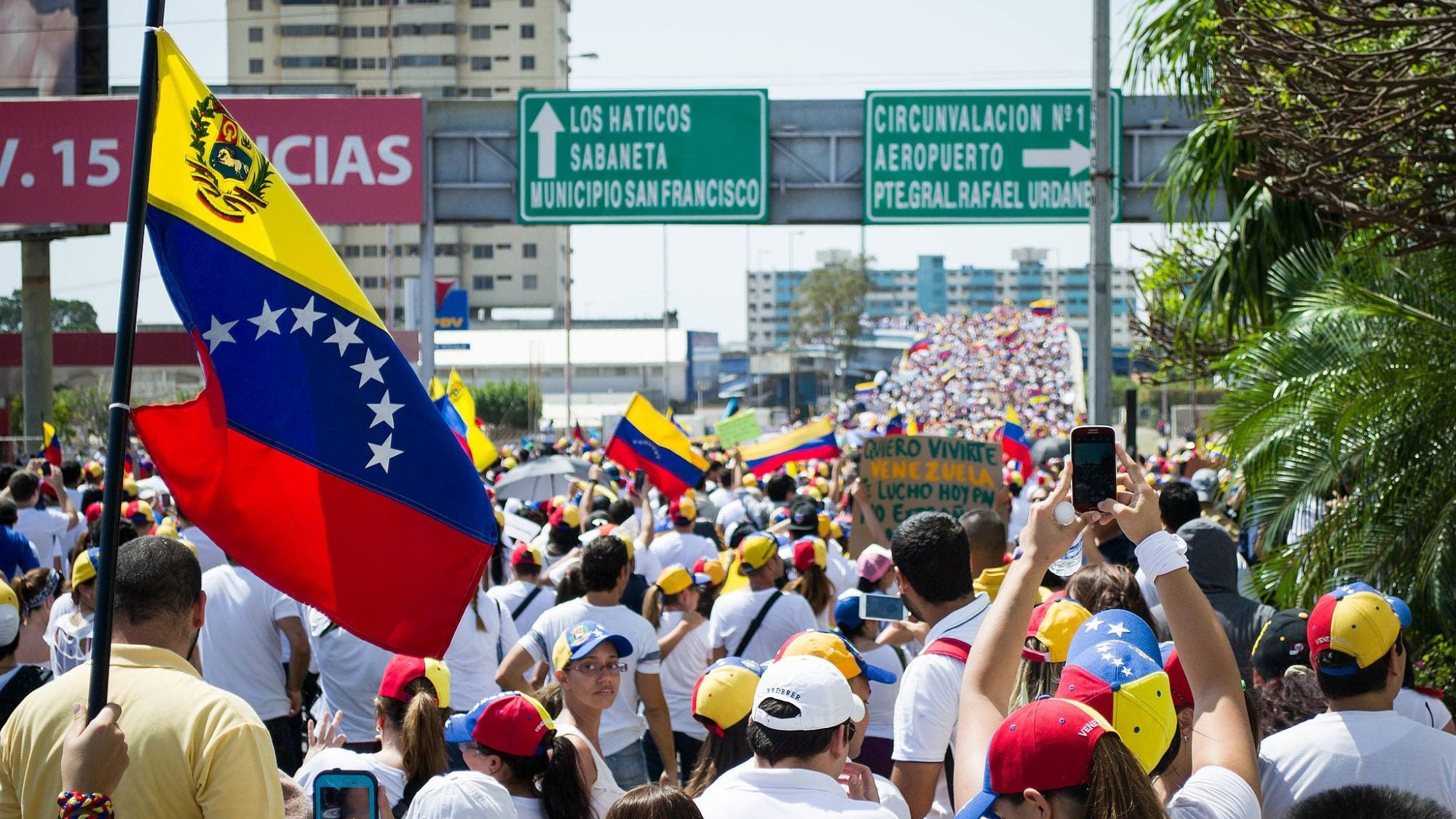
Title: Oil Licenses and Repression: The Human Rights Impact of Sanctions Policy in Venezuela
The revocation of General License 41, which had allowed Chevron to resume limited oil operations in Venezuela under U.S. sanctions, reveals critical insights into the unintended consequences of economic engagement with authoritarian regimes. Although such licenses are often intended as diplomatic tools to promote democratic reforms, without safeguards they can inadvertently strengthen authoritarian power and facilitate human rights abuses. This paper highlights two key lessons for future sanctions policy. First, in autocratic contexts, economic licenses must include robust transparency and accountability measures to reduce the risk of enabling state-led repression and human rights violations. Second, greater international oversight of oil-related activities is essential in countries with well-documented histories of political repression and systemic abuse.
Introduction
On March 3, 2025, the U.S. Department of the Treasury’s Office of Foreign Assets Control (OFAC) revoked General License No. 41 (GL41), a significant policy reversal in its Venezuela sanctions program. Initially issued in November 2022, GL41 authorized Chevron to resume oil production and exports from Venezuela that would otherwise have been prohibited under U.S. sanctions imposed since 2014. OFAC’s role includes issuing such licenses to advance broader U.S. foreign policy objectives by selectively permitting economic activity in sanctioned regimes.
GL41 reflected a calculated shift in U.S. policy aimed at encouraging President Nicolás Maduro to allow competitive presidential elections. By enabling Chevron to manage roughly 25 percent of Venezuela’s oil production, the license offered the regime access to billions in oil revenues. However, following the July 28, 2025 presidential elections—widely reported by organizations like the Carter Center as a landslide victory for the opposition—Maduro disregarded the results. In response, OFAC ordered Chevron to cease its operations by April 3, 2025, (later extended to May 27), signaling the collapse of the strategy.
GL41 now serves as a cautionary case study: rather than promoting democratization, it strengthened an authoritarian regime financially and facilitated widespread human rights abuses. This article argues that GL41’s failure demonstrates how easing sanctions without transparency requirements can empower authoritarian regimes, entrench corruption, and worsen human rights conditions—offering broader lessons for future sanctions policies.
Oil and Human Rights: A Political Economy Perspective
Terry Lyn Karl’s concept of the petro-state remains essential to understanding Venezuela’s trajectory. Petro-states are governments that depend heavily on oil rents—revenues that, by their nature, encourage rent-seeking behavior, clientelism, patrimonialism, and corruption, especially where bureaucratic capacity is weak. Without transparency, these dynamics fuel institutional decay and democratic backsliding.
Importantly, fragile institutions in petro-states often give rise to systemic human rights violations. As the U.N. Commission on Human Rights noted in South Sudan’s oil-producing regions, armed conflict, militarization, and the securitization of oil operations have made human rights “a casualty” of oil politics. Similar dynamics have unfolded in Venezuela, where weak governance structures opened the door to abuses on a mass scale.
Venezuela: From Oil Wealth to Authoritarianism
Venezuela’s political deterioration exemplifies how oil revenues can erode democracy. Following Hugo Chávez’s election in 1998, democracy steadily weakened. Chávez centralized power, deepened oil mismanagement, and used Venezuela’s national oil company, Petróleos de Venezuela, S.A. (PDVSA), as a political slush fund. After his death in 2013, Maduro inherited both power and a system of entrenched corruption.
Maduro’s response to political opposition—particularly following the opposition’s 2015 parliamentary victory—was marked by systematic repression. As Venezuela’s socio-economic crisis deepened, the regime dismantled the National Assembly, marginalized opponents, and relied on arbitrary detention, torture, and killings to suppress dissent.
International bodies, including the International Criminal Court (ICC) and the U.N. Fact-Finding Mission, have documented this pattern, linking corruption to serious human rights violations. Oil revenues—captured and distributed without oversight—became a critical tool for rewarding loyalty among the security forces and political elite, thereby entrenching authoritarian rule.
As Venezuela’s political decay deepened, state institutions collapsed, leaving the country vulnerable to criminal organizations that exploit its weak governance structures. The rise of economic informality, particularly illegal mining operations, has further exacerbated human rights violations, compounding the country’s humanitarian and political crises.
GL41 and the Expansion of Maduro’s Repressive Capacity
Against this backdrop, GL41 aimed to incentivize democratic concessions by offering partial sanctions relief. The license served as a reward for reaching an agreement to create a humanitarian fund, an initiative that was ultimately never implemented. It authorized Chevron to enter oil agreements outside Venezuela’s ordinary legal framework, operating under the Anti-Blockade Law, an improperly enacted 2020 measure that granted Maduro broad authority to enter into economic agreements without oversight. As a result, Chevron’s oil contracts were treated as confidential, and both the collection and allocation of oil revenues were exempt from transparency requirements. Within this opaque system, the government collects half of Chevron’s production, generating an estimated USD 3.2 billion annually.
Rather than fostering political liberalization, these revenues funded an intensified campaign of repression following the fraudulent 2024 elections. As the U.N. Fact-Finding Mission summarized, “the Government of Venezuela continues to engage in actions constituting the crime against humanity of persecution on political grounds.“
Given the pervasive corruption and lawlessness in Venezuela, it is unlikely that any oil revenues generated under GL41 were isolated from human rights violations. On the contrary, the pervasive corruption and near-total collapse of the rule of law appear to have created conditions in which oil revenues supported systematic abuses.
While discussions about sanctions often focus on their humanitarian impacts, the Venezuelan case reveals a crucial lesson: sanction relief without strong transparency and accountability measures can entrench authoritarian power rather than weaken it. Far from easing repression, poorly conditioned economic engagement risks reinforcing the very regimes it seeks to reform.
Lessons from Venezuela
The United States granted GL41 to support Venezuelan democratization, but it ultimately created conditions that undermined that objective. By allowing the Maduro government to capture and distribute billions of dollars in oil revenues without transparency or accountability, GL41 not only deterred democratization but also fostered institutional conditions conducive to human rights violations. While there is no evidence that international oil companies like Chevron directly participated in these abuses, the oil revenues generated under GL41 strengthened Maduro’s predatory capabilities.
Maduro’s government relies on distributing economic privileges to maintain the loyalty of military, police, and political elites, especially as popular support wanes. Corruption, fueled by oil revenues, remains a central mechanism for consolidating control, even as Venezuela’s broader oil industry declines.
Revoking GL41 will cut off Maduro’s access to the oil revenues generated through Chevron’s operations, thereby limiting his ability to reward the coalition responsible for escalating human rights violations. However, ending the license alone will not address the deeper institutional problems that enable systematic abuses. Maduro is already preparing to nationalize Chevron’s operations, a transition that may prove less efficient but will nonetheless continue to fuel andsustain Venezuela’s autocratic governance.
The Venezuelan case highlights two broader lessons about the relationship between oil, economic sanctions, and human rights.
First, any OFAC licenses authorizing oil transactions with autocratic regimes must include conditions to deter human rights abuses and promote transparency. For instance, creating a humanitarian fund with the government’s share of Chevron’s oil revenues under GL41 could have helped prevent such abuses and enhanced the license’s economic and social impact. Despite recognizing PDVSA’s central role in Venezuela´s entrenched corruption, OFAC granted GL41 without sufficient safeguards. Although the U.S. Treasury stated that the license would prevent PDVSA from profiting from Chevron’s sales, the Maduro government nonetheless captured billions in oil revenue. OFAC should have exercised its broad discretionary powers either to prevent this capture or to impose transparency requirements on the distribution of these revenues. Instead, GL41 fostered a “black box” environment that further entrenched corruption.
Second, oil operations in autocratic regimes with histories of severe human rights abuses are likely to face increased global scrutiny. Meeting human rights commitments must become a more explicit and enforceable component of Environmental, Social, and Governance standards. Oil rents create powerful economic incentives that entrench exploitative political institutions, and thus human rights violations must be a core consideration in assessing the risks of doing business in these environments. International oil companies operating under such conditions must be subject to clearer and stricter guidelines regarding their responsibility to avoid enabling human rights abuses.
Ultimately, GL41 exemplified a dangerous contradiction: condemning Maduro’s abusive and corrupt governance while simultaneously granting him access to billions of dollars administered without oversight. Future sanctions sanction relief efforts must prioritize transparency, accountability, and the protection of human rights—otherwise, they risk strengthening the very regimes they aim to reform.
…
Jose Ignacio Hernández is a law professor at the Andrés Bello Catholic University in Venezuela, a senior associate at the Center for Strategic and International Studies, and a visiting scholar at Boston College Law School. His research focuses on the interaction between economic regulation, state capacity, and development
Image Credit: María Alejandra Mora (SoyMAM), CC BY-SA 3.0, via Wikimedia Commons
Recommended Articles

From the 1960s to the 1990s, the Danish government implemented the “Spiral Campaign,” a family planning policy that fitted four thousand and five hundred Inuit women and girls—many underage—with intrauterine…

This piece examines the UK government’s proscription of Palestine Action under the Terrorism Act, situating it within a broader trend of shrinking space for public dissent. It argues that the…

This article analyses the distortions of the International Humanitarian Law (IHL) notion of proportionality in the context of the Israel-Gaza war. It discusses Israel’s attempts to reinterpret proportionality to justify…